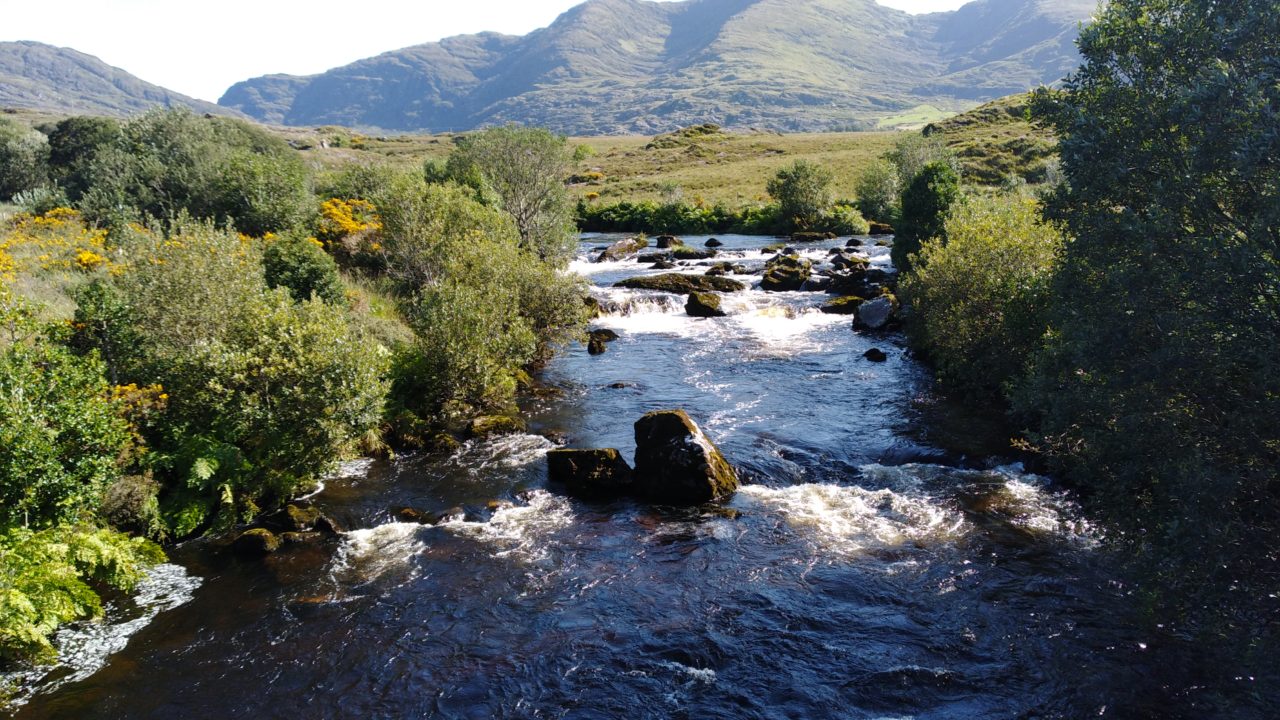Minister of State for heritage Malcolm Noonan has formally launched the socioeconomic evaluation of KerryLIFE, an agri-environmental initiative that operated between 2014 and 2020.
KerryLIFE was co-funded by the EU’s LIFE Programme; Department of Arts, Heritage and the Gaeltacht; Department of Agriculture Food and the Marine; Coillte; Teagasc; and the South Kerry Development Partnership.
The project covered two river systems which are home to almost half of Ireland’s population of freshwater pearl mussels – the Blackwater and Caragh River Catchments, in the Iveragh Peninsula, Co. Kerry.
The pearl mussel is a very rare aquatic species, and “is an excellent indicator of pristine water quality”.
On-farm works to protect water quality
Minister Noonan said its survival in the peninsula “is testament to the local people, particularly the farming community, who have worked hard to protect their important local ecosystem”.
KerryLIFE invested in on-farm works to enhance and protect water quality in the two catchments. Farmers fenced off river courses, installed drinking troughs and allowed nature to flourish.
For many, it was “counter-intuitive”, but working with the KerryLIFE team and the National Parks and Wildlife Service (NPWS), they blocked drains in order to prevent sediment washing into the rivers.
Techniques to restructure forests were also trialed across 220ha of public and private land in the catchments.
‘Perspectives have changed’
Minister Noonan has paid tribute to the KerryLIFE team and the local communities and farmers who came on board with this project.
“They have made genuinely significant and impactful changes that will inform our work to conserve the precious pearl mussel in the future,” the minister said.
“Over the years and decades, land use policies relating to farming and forestry have varied considerably.
“Many of those policies were born out of social and economic needs as we saw them at the time, and based on our understanding of our environment at that time.
“Today though, perspectives have changed, laws have been strengthened, our knowledge has improved, and of course there is a much greater interest in nature and environment than perhaps there used to be.”
Project manager Richard O’Callaghan said that ideas and initiatives implemented by farmers and foresters during this demonstration project “underpin their ongoing commitment to conserving our natural heritage”.
“The lessons learned here will inform freshwater pearl mussel conservation activity across the EU for years to come,” he added.
Evaluation report
The independent external evaluation of KerryLIFE involved consultations with all participating farmers, interviews with members of the project steering committee and other agencies, an in-depth review of project documentation and detailed mapping of the two catchments.
Speaking on behalf of the team of independent evaluators, Dr. Karen Keaveney, head of subject for rural development and assistant professor in the School of Agriculture and Food Science, University College Dublin, said that initiatives such as KerryLIFE “need to be fully mainstreamed”.
“Our ecology, particularly in our upland communities, is a strategic resource; and farmers need to be fully and properly paid for conserving biodiversity.
“The European Commission’s current proposals for a greener and fairer Common Agricultural Policy [CAP] are long overdue and all member states need to fully support them,” Dr. Keaveney added.
The evaluation report highlights the importance of upland areas as refuges for biodiversity and as strongholds of indigenous farming practices and place-based traditional knowledge.
It notes the importance of including everybody in the local community – farming and non-farming – in supporting agri-environmental initiatives.
The report calls for proper investment in upland communities and services, including nature conservation, and it points out that urban and lowland communities depend on the wide range of ecosystem services that Kerry’s uplands provide.
The authors recommend paying farmers adequately for ecosystem-service provision and developing comprehensive markets for their produce through creating a model of farming built on a foundation of sustaining nature and farming households in high nature value areas.
In the context of the current CAP negotiations, the report points to the merits of the European Green Deal and the current commission’s CAP proposals, particularly front-loading and convergence.
The evaluation was commissioned by the NPWS at the Department of Housing, Local Government and Heritage. It was undertaken by an independent team of three researchers: Dr. Caroline Crowley, Dr. Karen Keaveney and Dr. Breandán Ó Caoimh.
